This was written, by invitation, by Ansley Coale. It is not intended to represent the opinion of Craft Distillers.
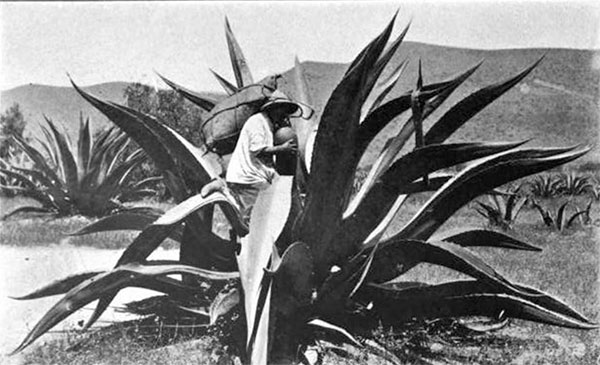
collecting agave sap for pulque, 1904
PULQUE & MEZCAL
Pulque, fermented from the sap of the agave, a plant that was the body of the goddess Mayahuel, had deep ritual/spiritual meaning. Before the Spanish conquest, its psychotropic properties were reserved for spiritual purposes. Warriors drank it before going into battle, human sacrificial victims drank it before lying on an altar and having their living heart cut out. Ordinary folks were forbidden to drink pulque except in ceremonial settings: a person who violated this three times was put to death.
MEZCAL IS A PURIFIED AND CONCENTRATED DISTILLATE
OF THE COMPLEX AGAVE, WHICH IS ALSO THE SOURCE OF PULQUE
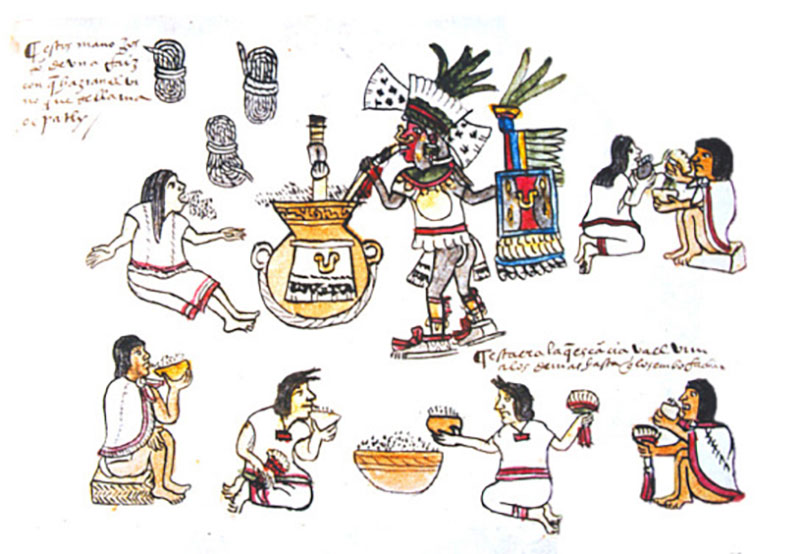
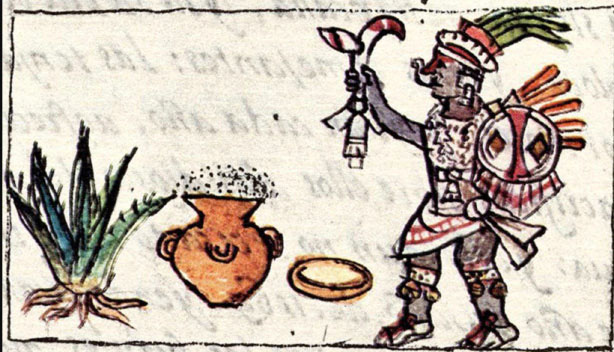
pulque god tezcatzoncatl, a pot of pulque, & an agave/codex florentinus 1.22
[pulque was] “a god to be revered …, a divine thing, considering its effects and power to intoxicate.” So wrote Diego Durán, a Dominican friar who closely studied indigenous culture immediately following the Spanish conquest.
Young Aztecs put to death for consuming pulque
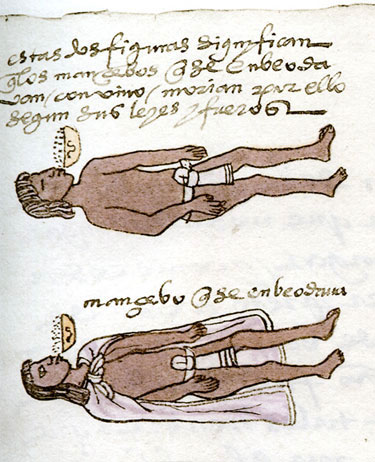
codex mendoza f71r
A large mural dated to ca. 200AD below the pyramid of Cholula represents a gathering at which humans are consuming pulque.
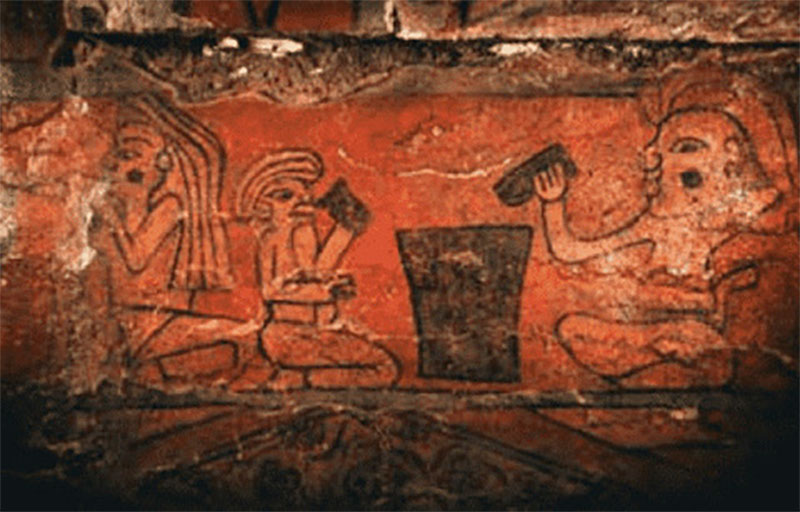
Since the name of the brand is Los Nahuales, let’s notice that something interesting is happening to this human…
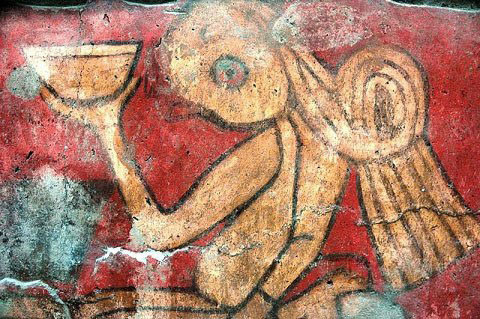
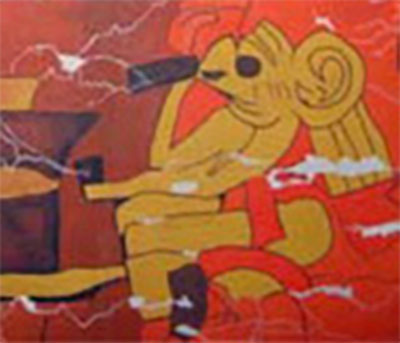
….to this one…
….and to these two
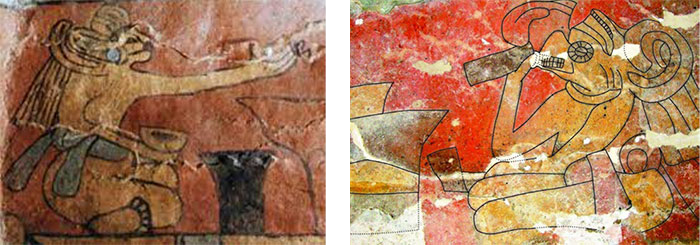
The psychotropic properties of pulque were often enhanced with datura, toad venom, mushrooms, and so on, but for now let’s simply acknowledge that mezcal contains the same esters and compounds as pulque. That good mezcal induces awareness, clarity of Mind, and a propensity to have interesting thoughts, is well-known. The Encyclopedia of Psychoactive Plants, s. v. agave: “inebriation remains clearer”. So why not look inside when this is going on?
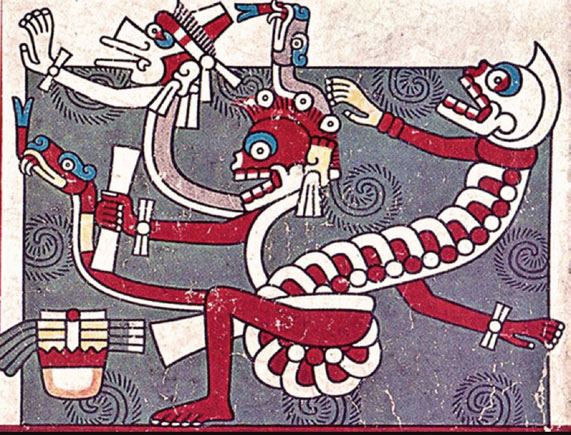
codex laud F44
The Aztecs believed that humans had three souls: the tonali, consciousness, the teyolia, the heart self, the center of one’s being; and the ihiyotl, the breath. Note the correspondence with Buddhism’s body/heart chakra, speech/throat chakra, and mind/chakra at crown of head. The image at left shows the souls leaving the body at death. The tonali could travel outside the body, but died with the person, as did the breath. The heart center, which Don Juan called the nahual, was immortal, and at death dispersed in ways depending on how you had lived your life.
Only you can consult your own inner being. Pay attention to the teyolia, and don’t use words to think about what’s going on. Exist in the moment, pay attention, experience that moment directly…
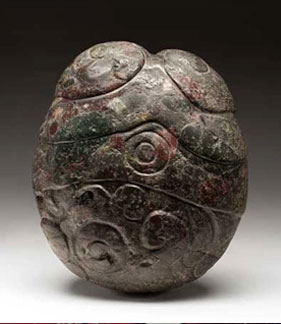
Aztec representation of
the human heart,
excavated
at the Templo Mayor
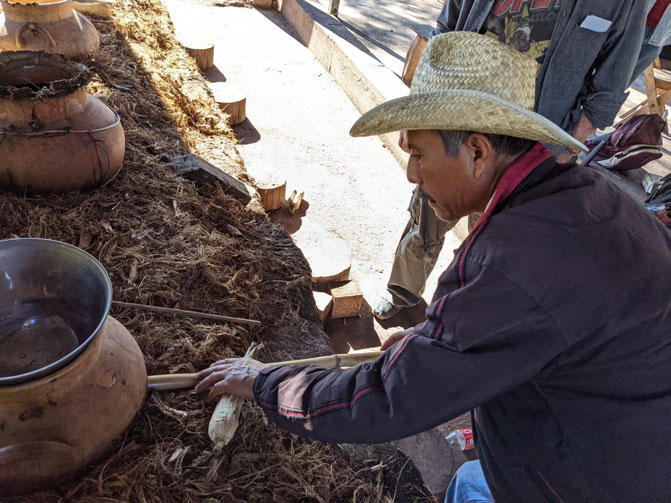
Mezcal is good for this because of certain properties of the agave, but also because mezcal comes from humans who live and work this way. Their life, their culture, their work: it all shows up in what they distill.

